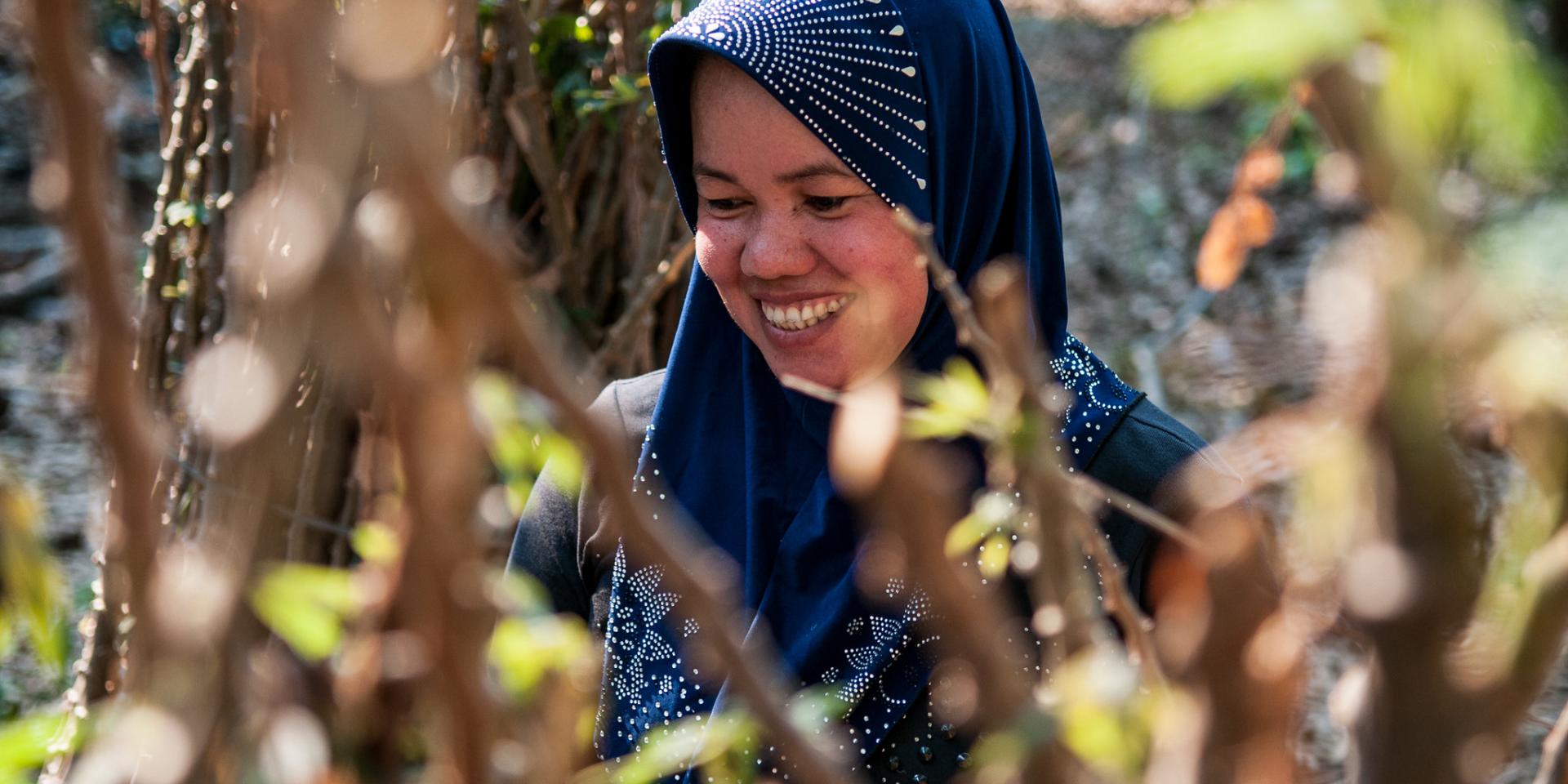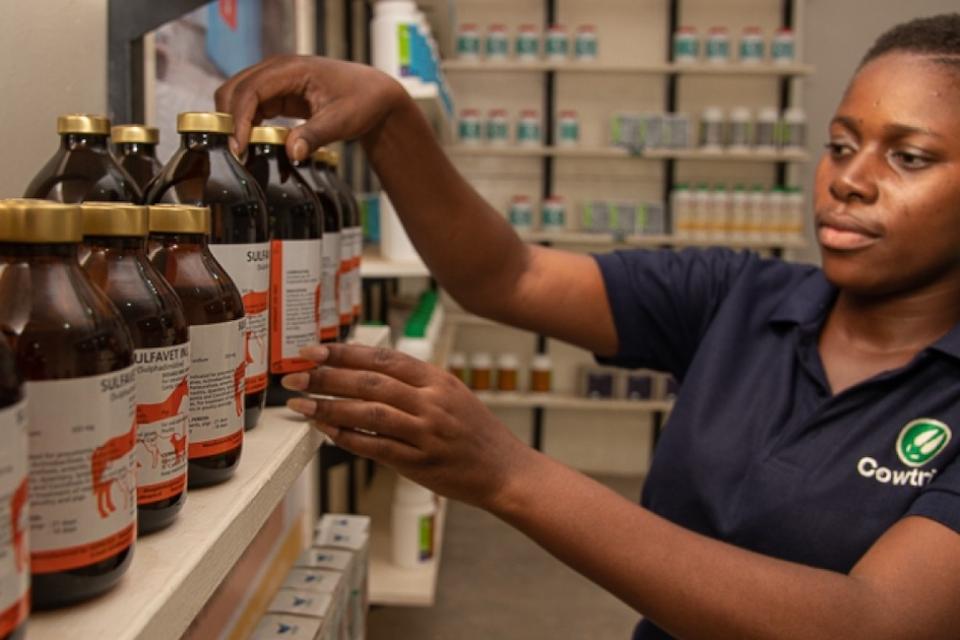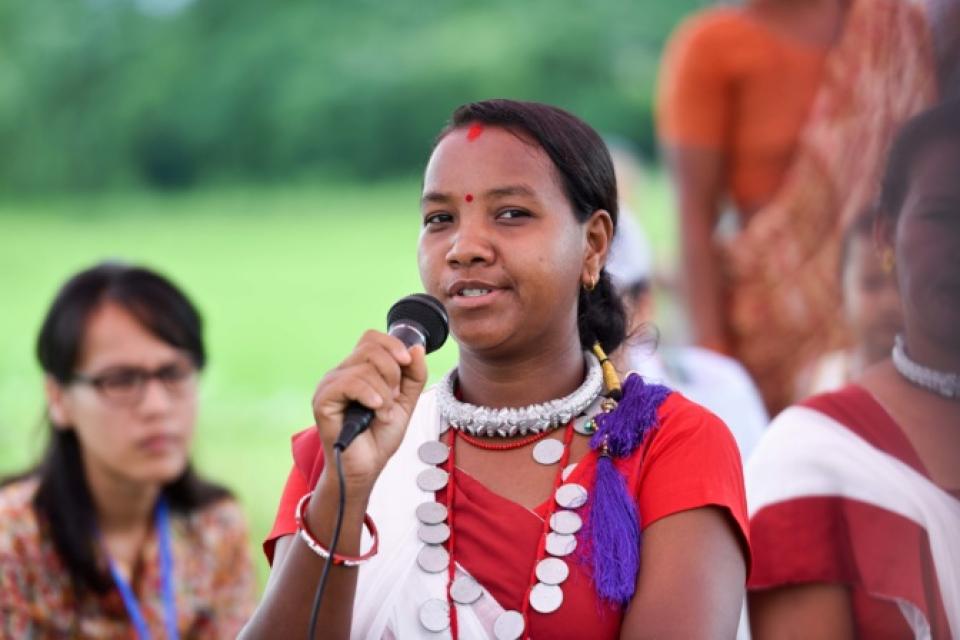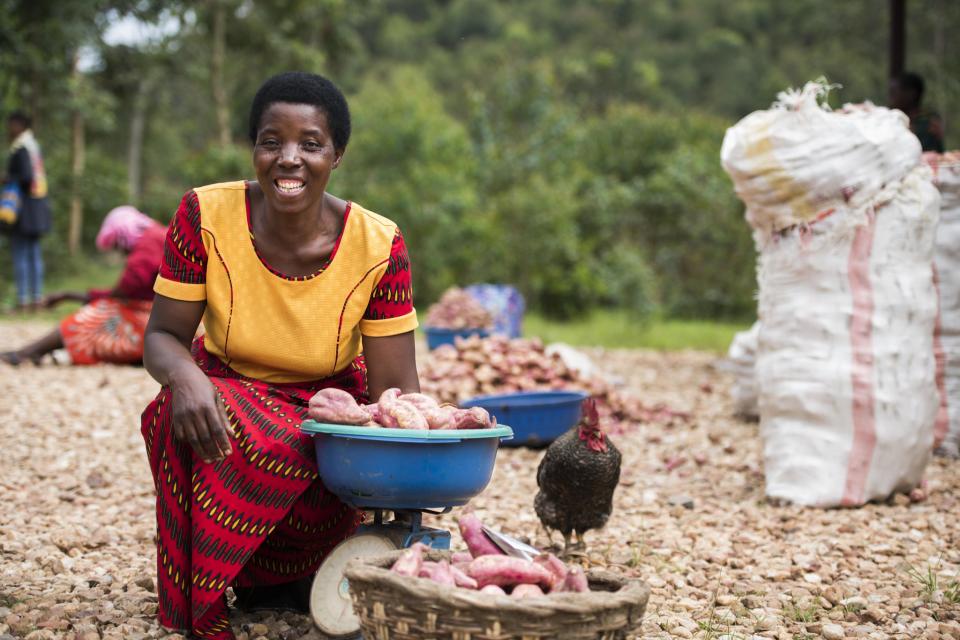Five new research projects to bridge evidence gaps, inform gender-responsive policy, practice and research
 Photo: GeorginaSmith/©2014CIAT
Photo: GeorginaSmith/©2014CIAT
The CGIAR GENDER Platform is pleased to announce five newly commissioned research projects to generate evidence that will inform policy, practice and research. The projects, which will continue until March 2022, will develop and communicate evidence-based recommendations for ensuring that development activities promote—rather than jeopardize—gender equality.
Gender equality in agriculture and food systems is at the intersection of many development issues: poverty reduction, hunger eradication, water security, sustainable production and use of land and water, good nutrition, agricultural innovation systems as well as climate change adaptation and mitigation strategies.
Gender research globally addresses the distributional dimensions of these factors. Yet, evidence is generally lacking about how to best use institutions, policies and activities to improve the lives of women and men in rural areas. Evidence regarding what works for whom under which conditions can contribute directly to more effective policies.
Several years ago, a shift in focus from inputs and technologies to realizing beneficial outcomes was seen as a major step forward for research – particularly where it concerns women’s needs and their participation. The shift also called for an increased recognition of the need for evidence on gender equality and women’s empowerment. CGIAR has been undertaking systematic efforts to integrate gender into core programs that have yielded important insights into what works best for whom at different stages of development. These have contributed to new knowledge on gender in agriculture and the identification of opportunities for future research.
The knowledge base is now shifting toward implementation and impact through the use of gender data and analysis to inform interventions such as participatory approaches to natural resource management, credit program design and implementation, improved market access for smallholders, various types of land reforms and advocacy campaigns around issues like political representation.
Five new projects to inform policy, practice and research
The CGIAR GENDER Platform’s Evidence module has issued new research grants to produce sound evidence using appropriate rigorous and cutting-edge quantitative and qualitative methods and approaches to inform policy, practice and research on gender equality in agriculture and food systems.
The Evidence module will provide financial support for these new research projects that advance the state of knowledge in three priority gender research themes, as outlined below:
Theme 1: Gendered dimensions of institutions and governance of sustainable land and water systems
Exploring women’s empowerment pathways in water governance for better livelihoods in Bangladesh, led by the International Rice Research Institute (IRRI)
This project will study gender and power relations and associated dynamics in water governance and how they contribute to gender equality and women’s empowerment in the polders in Bangladesh. This study will fill a key evidence gap by assessing the extent and nature of women and men’s participation in water management groups. It will examine the political, economic, cultural and biophysical contexts that influence women’s participation and decision-making in water governance processes. The findings will help find the best strategies, methods and interventions for achieving women’s empowerment and gender equality in the water governance of the polders. Project partners include Shushilan.
Transforming the rules of the game: Gendered liveability in peri-urban Dhaka, Bangladesh, led by the International Water Management Institute (IWMI)
Through contemporary feminist political economy frameworks, this project will provide evidence on the factors that constrain resilient, sustainable and equitable food systems by asking the following questions: 1) how does the governance of food water environment systems impact gender power politics and difference, and 2) how do social positioning and relations determine connections to institutions and well-being, including food related experiences? Applying cutting-edge feminist approaches, the study will undertake a nuanced, critical analysis of power politics and difference in everyday experiences of living and being. The researchers will map how material institutional and physical environments shape gendered social positioning, livability and food security through innovative methods, including theatre for social change. The project’s partners are the Alliance of Bioversity and CIAT, the International Potato Center (CIP), the Bangladesh Agriculture University, BotTala Theatre for Awareness and RUAF Urban Agriculture and Food Systems.
Theme 2: Women’s empowerment through engagement in agricultural value chains
Gender and empowerment inquiry into the downstream rice value chain, led by AfricaRice
The study aims to determine whether women's participation in downstream nodes of the rice value chains in Uganda, namely processing and marketing, is as beneficial and empowering as would be expected. The study will address several research questions, including:
- To what extent are women and men involved in processing and marketing nodes of the rice value chain and what roles and activities do they perform at each node?
- What are the different factors likely to constrain or enable women's effective engagement at different downstream rice value chain nodes?
- How do women and men's remunerations differ and what factors cause the disparities?
- What are the welfare benefits and value chain gains of women's engagement in rice value chains?
- Can disengagement contribute to women’s empowerment?
The project’s partners are Makerere University and the National Agricultural Research Organization (NARO) in Uganda.
Promoting women's empowerment in value chains through a sustainable livelihoods approach in Papua New Guinea and Cambodia, led by the International Food Policy Research Institute (IFPRI)
This project will take a sustainable livelihoods approach to evaluate and compare women's labor participation in production and non-production nodes in agricultural value chains. To identify levers for promoting women’s entrepreneurship and equitable sharing of benefits, the study will also evaluate linkages between livelihood strategies of women and analyze measures of women's empowerment to quantify costs and benefits of interventions providing job opportunities for women in different sectors. The study’s partners include the Alliance of Bioversity and CIAT, the National Agricultural Research Institute of Papua New Guinea, the National Research Institute of Papua New Guinea and the Cambodia Agriculture Research and Development Institute.
Theme 3: Enhancing gender equality and women’s empowerment through climate-smart agriculture
Assessing gender-responsive, climate-smart solutions for women cocoa farmers in Ghana, led by the Alliance of Bioversity and CIAT
By bringing together traditional social science frameworks with human-centered design, this study will provide an innovative approach to gender research by simultaneously investigating women's intersectional experiences of climate vulnerability in cocoa and inviting women farmers to participate in designing solutions that will empower them to overcome such vulnerabilities.
This study assesses the barriers and enablers of climate-smart agriculture adoption for women-headed cocoa farms and women cocoa farmers. To support women-headed cocoa farms, a gender-sensitive climate-smart agriculture approach could include increasing women's access to labor-saving technologies and developing women's groups for accessing loans or specialized training. The Alliance of Bioversity and CIAT will partner with the University of Ghana’s Department of Agricultural Economics and Agribusiness.


